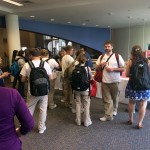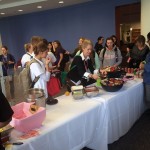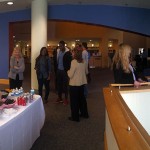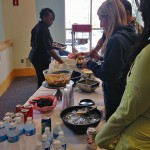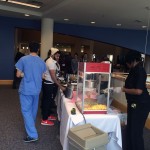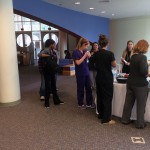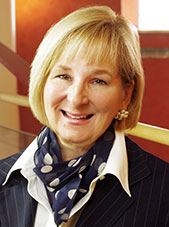
Executive Director
In this issue I would like to take a look at the second element of what we consider when we talk about the HS/HSL. A few months back I wrote about Expertise, and in this issue I would like to examine Resources.
This year due to a flat budget, continued 6-7% increases from our vendors, and a reduction to our MPower budget, we were forced to cut about $250,000 from our resources budget. The cuts were distributed in this way:
- Textbooks and monographs will no longer be licensed or purchased, regardless of format, with the exception of reference, reserve, or essential titles.
- All remaining print-only journals have been cancelled. The cancellation list can be found here.
- Journals that are licensed individually rather than as part of a bundled package with a cost per use of greater than $4.00 and overall usage of fewer than 300 full-text downloads in 2013 will be cancelled. The cancellation list is found here.
- For the past three years the School of Pharmacy (SOP) and the HS/HSL piloted co-licensing campus-wide access to a collection of e-textbooks (Access Pharmacy). Due to escalating costs, publisher unwillingness to “unbundle” core texts from the package, and budget constraints, the Library and SOP mutually agreed to discontinue this product.
- The MPower Virtual Research Library funding was reduced by 40%. This project supported co-licensing of several biosciences resources shared by faculty from UMB and College Park. Clinical Key, Essential Science Indicators, the Global Health database, and several individual bioinformatics journals were cancelled.
These cancellations have caused us to refocus with great energy on the effectiveness and responsiveness of our interlibrary loan (ILL) program. Early in 2014 we made our ILLs free to faculty. In late August we launched a new system using the campus login and password for ILL requests. We have also joined a program that supplies most requests within 24 hours. A recent comment in our e-suggestion box suggests we are on the right track:
“I just wanted to make a comment regarding my experience using ILLiad. Specifically, I would like to express my appreciation for how quickly my article and book chapter requests are fulfilled, often the same day or day after I request them, and I request A LOT. Such unfettered access to articles not directly available through HS/HSL makes my research much less stressful, more productive, and more enjoyable. To whomever (or whomevers) are getting the articles for me so quickly, THANK YOU!”
We will continue to focus our attention on making this service the best it can be.
This spring we will be embarking on a “zero-based collection development” strategy because the budget crystal ball is indicating we will be making further cuts. This means we will be taking apart our journal bundles and building the collection from the bottom up based on usage and cost per use until we reach our spending limit. Not a pleasant prospect, to be sure.
In my opinion, libraries are moving into a post-resource ownership era, where acquiring information for our community will happen in real time any number of ways – licensing content, acquiring “just-in-time” or on demand, borrowing, open/public access advocacy. Budget vagaries and uncertain publishing paradigms challenge us, but we will strive to get you the information you need.







